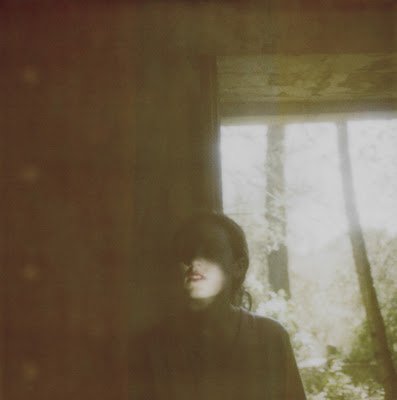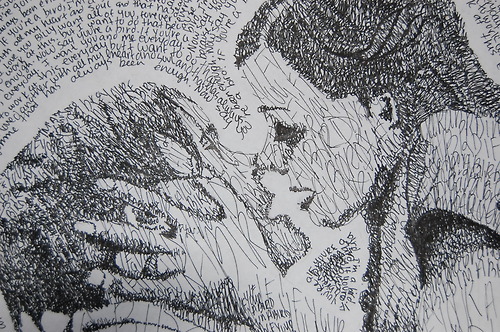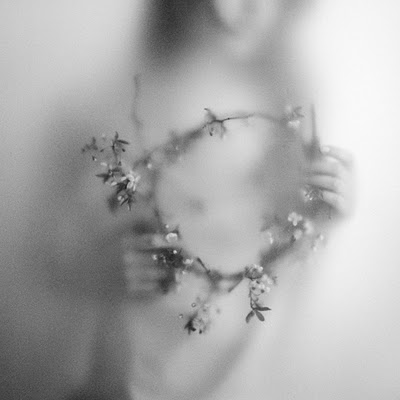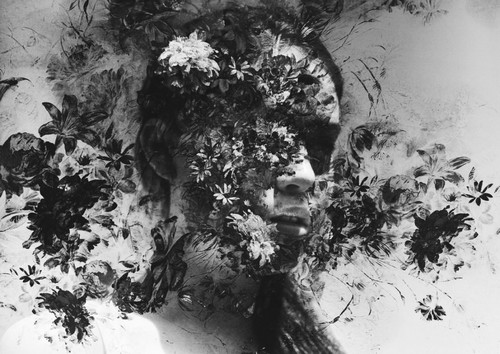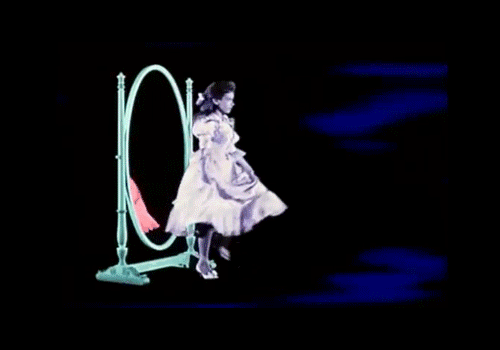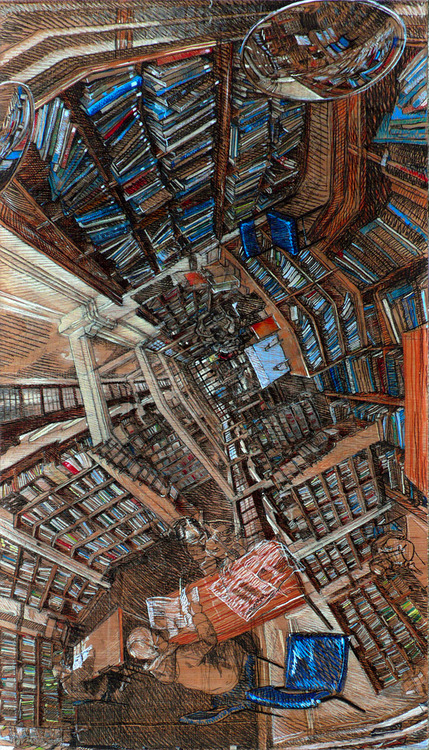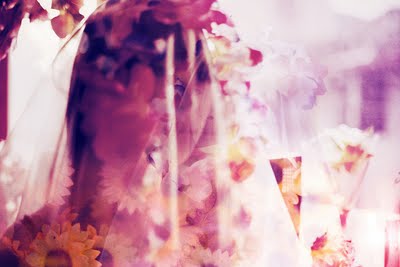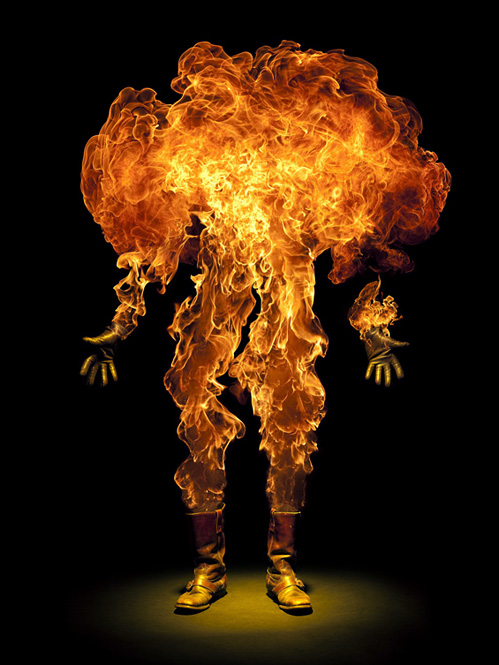Talk delivered at Centre of Gravity in the summer of 2012
The Buddha famously compared his teachings to a snake. A snake? My dharma, he said, is like an elephant, like a raft, like a city. Like a snake. He is speaking in the language of his time. It’s fourth century BC, and he’s talking as usual in a practical, relational way. He’s talking to people who know snakes. The Buddha is not a philosopher, he never talks about something like God, he teaches for decades right, year after year, and he never talks about some kind of enduring divine quality. He’s always talking to you, in the language you understand, about the things you know. When he talked to farmers he talked about farming. When he talked to someone who was good with a chariot, he talked about chariots. I think if he were here, if he was talking in this room, he might talk about squirrels and raccoons, cats and dogs. (The bluebird that flew into my heart.)
This is how he chose his metaphors, and in this way his talking becomes an ongoing demonstration. A modeling. Instead of eternal truths or eternal laws – he is speaking in this way, in this moment. It’s you and it’s me in this moment. His speech is part of the conditions arising, and falling away, and the conditions are arising, and the words are coming, and they contact the sense organ of the ear, there’s vibration, there’s sensation, followed by vedana, a feeling tone: I like that I don’t like that, there might be some mental formations, some stories about what he said (how does this relate to me? Isn’t the Buddha talking about me? Have you ever done this? You pick up a book and start flipping through the pages: where am I? C’mon, I know I’m in here somewhere.) And then all the sensations and the stories and judgments, all pass away. Fundamental nature of all experience: arising and passing away. Law of nature. My toothache it’s so horrible. My heartbreak, it’s never ending. But then it ends. Even the things that go on forever, come to an end. Even the dictator, even the military rulers in Egypt, in Syria, one day, they will pass away, because the people will speak up against the old repressions, the old habit patterns of repression. Every heaven, and every hell, they come and they go. And it’s so important, so central to this practice, this practice of sitting, to be awake, so that you can follow the inhale patiently, carefully, like a detective, until it becomes the exhale, and then to see how the exhale, to follow it all the way to the bottom, to that small space where there is no inhale and no exhale. To experience the law of nature: the arising and passing away, breath after breath. And to experience how it is fundamentally not about you. It’s just sensation, coming up, arising as the field of awareness arises, and they meet each other and kiss, and then they both pass away.
This morning when I was sitting I felt hungry. And I used to think that hunger, I used to think of my hunger, as an idea. It was mostly located up here. And then sometimes down here, where I imagined my stomach was. Though actually those are my intestines. What a wonderful place to practice: this hunger. The sensation arose, and then I could just sit, and watch it, without moving. This is the practice. I think the practice isn’t about selecting menu items: I want this. I want this, I’d like some of this, some of that. Only the red ones, not the blue ones. The hunger is not my hunger, it’s just a sensation. And if you wait with it, it will actually go away. The hunger I experienced is not a God, and I don’t need to treat it like a God. You can just wait with it, like you would wait with a teacher, and let it show you the fundamental nature of experience: how every sensation arises, and passes away.
The heart of sitting practice, I think the heart of practice, is about not choosing. Christi-an was telling me about a dude who came into town, what was his name again? Adyshanti. And he said: nirvana – there was a lot of talk about nirvana or enlightenment at this gathering – so he said, “Nirvana is…” Wow, he’s gonna tell me what nirvana is, should I write this down so I won’t forget it? Later to your best friend: I don’t know, dude told us what nirvana was, I can’t remember. He said: Nirvana is being in this moment, this moment, without any preferences. In other words no standing back with the words: “I like that.” Or, “No, I don’t like that.” Have you ever had a moment in your life without any preferences?
I think Shunryu Suzuki would call this moment: beginner’s mind. I used to be interested in answers, in getting something, in knowing more. Now I’m just a question. Every year it seems I know less and less.
I’ve been making an informal poll of some of my friends, and some folks I hardly know, except that we’ve shared moments I imagined were silent together. I wanted to lift the curtains a little bit, I wanted to find out: what’s going on for you, when you sit down in meditation? How is your practice? You know what I hear back? One person says: I just chit chat the whole time. Bell goes off: bang, I’m off and blabbing and it doesn’t stop until the next bell. Twenty minutes, thirty minutes, an hour later, boom, and for exactly that moment I’m quiet. And someone else says: I sit everyday, but I’m a bad meditator. Or: I’m not getting any better, even though I’ve been doing it for years. I’m not getting any better even though I’ve been doing it all week. I just use the time to make to-do lists. Another: I always talk to my dead father. Another: I’ve been getting angry lately, and I just try to sit on the cushion to make the anger go away. Another: I can’t seem to concentrate. I’m no good at it, and then simply: I’m no good.
My hunger. My stomach. My yoga mat. My practice. My snake.
Let’s hear a few words now from the Buddha. This is from the middle length discourses, and it’s come to be known as the Snake Sutra.
“Suppose a man needing a snake, seeking a snake, wandering in search of a snake, saw a large snake and grasped its coils or its tail. It would turn back on him and bite his hand, or arm, or one of his limbs, and because of that he would come to death or deadly suffering. Why is that? Because of his wrong grasp of the snake. So too here some misguided people learn the dharma, but having learned the dharma, they do not examine the meaning of those teachings with intelligence. They do not gain a reflective acceptance of those teachings, instead they learn the dharma in order to criticize others and win in debates, and they do not experience the good, for the sake of which they learned the dharma. These teachings, being wrongly grasped by them, contribute to their harm and suffering for a long time.”
Does that sound to you like the warning on the cigarette pack? There’s a red light flashing and the alto voice says: This dharma could be bad for your health. If you don’t practice in the right way, it’s not just, oh, you missed the sweet spot, but instead: oh, you’re going to suffer a mortal wound. You’re much worse off than before. Excuse me, but um, I don’t mean to mention this but: those aren’t your jeans turning a darker shade – that’s a snake. And it’s eating you alive, right now.
One thing seems clear: the Buddha doesn’t seem all that interested in someone learning the laws, or some set of rules, so they can argue with somebody. My Buddha is better than your… fill in the blank. He’s not concerned with being right. With being righteous. I think the Buddha is saying the dharma, the teachings, are not about being correct. But instead: does the practice help you as a person, does it aid you in your well being? In your fulfillment? The Buddha’s teachings are not position papers, but, as Stephen Batchelor puts it, “a form of healing so we can flourish in all aspects of our existence.”
I don’t know about you, but this is a very very distant, even radical idea, when I rub it up against what I learned in Sunday school. It’s not about the old laws, and it’s not about some already established truth. In other words what the Buddha is talking about doesn’t sound anything like religion. He’s talking about love, isn’t he? And there are no rules for how to love someone. The Buddha is describing a practice that allows us, that invites us, that encourages us to be in this moment, it’s about the way we meet in this moment, with its conditions arising and passing away. How to be able to fully meet this moment? How to let every part of us bloom into this moment? To me that sounds less like a religion, and more like the radical, radical meaning to the roots, a radical invitation of a new kind of society. Not so different from what they’re doing on Tahrir Square. Or the Occupy Movement. Or in living rooms where people are helping each other, where they are lending a hand.
What are we doing when we’re practicing? When we’re sitting on the cushion. Are we engaging the old reliable machines of self punishment and feeding our practice into them? My practice is no good, and therefore I’m no good. I’ll never be a good enough mother. I’ll never be a good enough sister. Daughter. Employee. Yoga teacher. I’ll never be a good enough, meditator. Is the practice another way of activating the old habit patterns, has it become another way of saying no, to yourself? Which end of the snake are you holding? Are we holding here, in this room, as we sit together.
My hunger. My stomach. My yoga mat. My practice. My snake.
I wanted to read you this poem by Sharon Olds, such an excellent American poet. She’s in her 60s now and like many of the artists who I love most of all, she uses the material of her own life to create her art, to find her expression. As some of you know I’m a filmmaker, and some filmmakers, some film artists, they have dreams that require large crews, and complicated lighting set ups and props and actors. In order to make the dreams of the day look like the dreams of the night, they require this great apparatus, this great concentration of money and people. But mostly I prefer the work of what Deleuze and Guattari called a minor literature, or small movies. If the Buddhists are right, then the whole world, I mean the whole world is right here, in this moment, in this place between us. If you could find some way to show that.
You know many of my friends have made this crazy decision to have children, and there’s rumours that there are even people in this room, right now, that are pregnant. And it’s so interesting to see what happens to someone’s practice when they have kids. There are generally two things that happen. So you’re an artist, OK? And you make movies. And then you have a child. I know it sounds like science fiction, but it does happen. In general you’re going to do one of two things. You’re an artist, you’ve made a bunch of things before, and you’ve made them in a certain way. Maybe you like to take your camera out for a walk on the most beautiful, sun drenched days of the year, and you only shoot early in the morning and late in the day, because that’s the kind of light you’re interested in, the kind of living you’re interested in. Or maybe you’re making personal documentaries where you’re gathering bits and pieces of the world around you, shooting your friends and familiars, and then you spend months, or even years, stitching those little unrehearsed moments together, so that they have a coherent shape, so that even strangers can look on with something like recognition. And then you have kids, and you have a simple choice that is not very simple. Either you can go right on, making movies in exactly the same way that you did before. Or you can change your method, change your practice, to accommodate the very new conditions that you’re living in. Or of course you can just stop, because there’s no time to make movies anymore.
I’ve seen it again and again, this struggle, and sometimes my friends can’t turn the corner, they can’t change. How did the Buddha put it? “This dhamma I have reached is deep, hard to see, difficult to awaken to, quiet and excellent, not confined by thought, subtle, sensed by the wise. But people love their place.” Their place. But people love staying home. They love, we love, staying close to what we already know, the comfort of the old answers and the old questions. The old practice. The old way we used to make movies, before the kids arrived. The Buddha goes on: “It is hard for people who love, delight and revel in their place to see this ground: this-conditionality, conditioned arising.”
I watch my friends trying to make this turn with their kids, holding a child in one hand and a camera in the other, and it’s so difficult. I think one of the hardest things we are asked to do is to be with our friends when they’re having difficulties, when they’re in pain. When they’re suffering. And one of the things that makes it hard is that we want to reach inside and hey just let me fix that, let me tweak that up, ok? Actually your bad feeling is giving me a bad feeling, so I want to fix you, so I can get rid of my bad feeling. And also, of course, you feel bad for your friend. And mostly, most of the time, you can’t change what they’re going through. The deepest practice, the deepest practice of compassion, is listening. They’re telling you how they can’t juggle it, they can’t manage, they’re sleepless, it’s too much, they haven’t had sex in a year, and all you can do is listen. Can you let that be enough? Perhaps the strength of your practice means that you can sit there with them and not have to offer your advice. Nobody really needs all that much advice. Have you noticed that? What people really want, particularly if they’re suffering – is their someone who is not suffering? – what people really want, I think, is not to have one more know-it-all, voice of authority coming down on them and saying: I know better than you do. This is what you should do. And this is what you should not do. I think what we really want, particularly when we’re suffering, is to feel that we’re being heard, is to feel that there’s enough space for us to talk, and for this talk to be received. Giving too much advice, maybe it’s like grabbing the snake from the wrong end. Well um… the Buddha says that you don’t even have a self, and you’re just making a god out of your depression, why can’t you let go and release into the infinite moment of the now. And your friend says: you used to be my friend, now it seems like your best friends live in Buddhist books.
But let’s go back to Sharon Olds. She’s determined to make work out of the place where she finds herself. She is doing a deep archaeological dig inside her own life, out of this moment, out of the conditions of her life as they are. She has turned the corner, she has changed her practice, she has a camera in one hand and a child in the other. And she spares herself nothing. She can’t afford to leave anything out, so she tell the whole story of three lives, and because she’s a poet, she manages to do it in just a few lines.
The Borders
To say that she came into me,
from another world, is not true.
Nothing comes into the universe
and nothing leaves it.
My mother—I mean my daughter did not
enter me. She began to exist
inside me—she appeared within me.
And my mother did not enter me.
When she lay down, to pray, on me,
she was always ferociously courteous,
fastidious with Puritan fastidiousness,
but the barrier of my skin failed, the barrier of my
body fell, the barrier of my spirit.
She aroused and magnetized my skin, I wanted
ardently to please her, I would say to her
what she wanted to hear, as if I were hers.
I served her willingly, and then
became very much like her, fiercely
out for myself.
When my daughter was in me, I felt I had
a soul in me. But it was born with her.
But when she cried, one night, such pure crying,
I said I will take care of you, I will
put you first. I will not ever
have a daughter the way she had me,
I will not ever swim in you
the way my mother swam in me and I
felt myself swum in. I will never know anyone
again the way I knew my mother,
the gates of the human fallen.
So there’s her mother, and her daughter, and what is so tragic, so uncanny, is that her mother gives her an unwanted gift. Aren’t all gifts unwanted? With her fastidious Puritan prayers. “She aroused and magnetized my skin.” Can you hear in this line the way that her skin comes alive, her ability to receive sensation, her feelings, comes through the vehicle of the mother. There’s something so deadly about that, because of the cost of this gift. There’s always a cost. Her mother models an adult world of feelings and heartbreaks and the marriage is going wrong and your father doesn’t love me, and you are a young, overly sensitive little girl, already the mother to your mother. The most selfish human being in the world – that’s your mother. Hi mom. How are you? It’s always about you. It’s always about what you want, about what you need. And if I can learn enough about you need, I can find what I need. Call it the emotional trickle down theory of human relations. The only way I can serve myself, is to serve you. “I wanted ardently to please her… I served her willingly, and then became very much like her, fiercely out for myself.”
And then she doesn’t shirk the habit momentum of this relationship, she doesn’t back away from the whole arena entirely: hey man I’m never having kids, are you kidding? Repeat that Oedipal charade? Not me. No, no, instead Olds plunges in and has a child, a daughter, and what she experiences is at first something like her old maternal relation, “When my daughter was in me, I felt I had a soul in me.” I felt I had a soul. I felt you were my soul in me. Wow. Some new purpose, some new fulfillment. But then she experiences her daughter as something separate. “I felt I had a soul in me. But it was born with her.” Born, born away. Separated, taken out of her. She’s lost her soul and gained a child. Tell me, would you lose your soul to have a child. In this moment she’s describing not simply the act of childbirth where the child is expelled into the world, but she’s describing her own separation, right? She’s the one backing away. She’s the one who is hurt, she’s had her soul taken away.
And then she is summoned to the present moment, to this moment, by her daughter’s crying, and she makes a vow, she sets an intention. “I will take care of you, I will put you first.” In other words, as she says, going on, “I will not ever have a daughter the way she had me.” She uses her practice to serve, but it’s not the kind of service she offered her mother, it’s not going to be a replay of the old habit momentum. Sure, she can feel the heat of all those old patterns firing, she can feel them pulling at her, weighing her down, calling her back. But she says no. I’m going to serve this child in a different way. And in that moment, she’s free. Because in that moment she makes a real choice. This is the seed place, the root place, of creativity. She makes a choice, she doesn’t simply follow the old habit pattern. This is the place where our practice is leading us to, to this place of creativity. Where we can make a choice. It’s not about killing anything, did you notice that? She’s not turning her past, her mother even, into an evil something and destroying it. She’s not hunting down the unwanted parts of her personality and stomping them out or even repressing them. But she unhinges herself, unhooks herself, from the old habit energy, and she says: I’m not only that. I’m not only that. In this new relationship, in these new conditions, I cannot be only that. “I will never swim in you the way my mother swam in me.” And by stepping into this moment of creativity of course she also offers this creativity to her child, as a gift. It’s not something that simply belongs to her, in fact all of the qualities and conditions she describes are relational, they arise between people. Fundamental nature of all experience: arising and passing away. Can you let it pass away? Can you let it go? Can you let go of the old patterns and find your freedom? And find your creativity?
And so as if that wasn’t enough, not content to leave us with the origins of creativity, Olds has one last iron to cast, a last stinging rejoinder, and it comes of course in the last two lines of the poem. Perhaps you could call this: the cost of her decision, the cost of her creativity. The cost of her childhood conditions. Sharon Olds writes, “I will never know anyone again the way I knew my mother.” And I will never know you, my daughter, with the kind of self-serving, too closeness that my mother brought me, even as she granted me the gift of intimacy itself. I’m going to give you what my mother could never give me: enough space to realize yourself as an independent person, with your own svarupe, your own self form. Your own self form. And you can hear in this the old hunger she learned so well from her mother: I learned what it means to be close, in fact, the hope of closeness itself, comes from my mother. From the horizon, the endless and unfulfilled need, of my mother. And that need brought me closer to her, closer than anyone I will ever meet again. This is the wound, the core wound, right here. I can only touch you, I can only kiss you, through this wound. I’ll never be as close to you as I was to my mother. What we have together is only a shadow of that blinding intensity, that Medusa stare, and the closer we get, the closer I can’t help getting, at the same time, to my oldest pattern. It looks like I’m moving towards you, and I am, but I’m also moving away from you, at the same time. I’m trying to be here with you in this moment, in the infinity of this moment, in the big sky of this moment, but part of that infinity is this old calling, this old pattern, this old snake of practice. The unwanted gift of my mother.
To make a poetry, to make an art, an expression, out of your wounds, and out of the practice you do with your wounds. It’s so much. I feel about Sharon Olds the way I feel about some of the people I’ve come to know in this room. I just feel so lucky that I’m living at the same time as you’re living. Sometimes just to come here, on a Tuesday night, and see your face when you’re practicing refuels me. Not because you’re perfect, not because you’re happy, but because you’re practicing, because you have, you already carry the practice in your face, somehow, so many of you carry your heart, and the heart of your practice, in your face. And it gives me so much hope.
My hunger. My stomach. My yoga mat. My practice. My mother. My snake. My gravity. My last words. Thank you.
